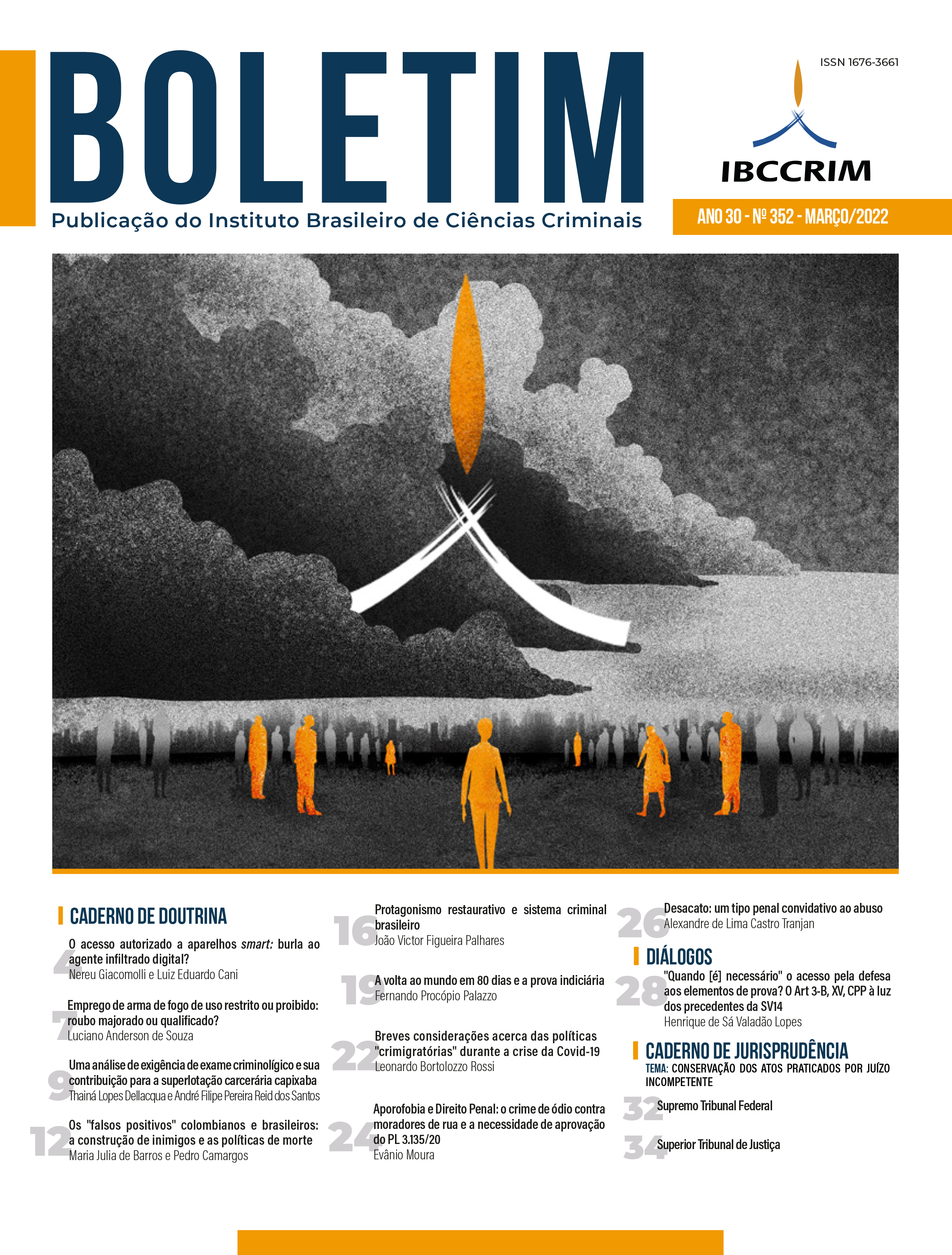Brazilian and colombians “false positives”
the construction of enemies and the politics of death
Views: 260Abstract
This article aims to analyze how a critical apprehension of the notion of "false positive" - a popular Colombian expression used to refer to lethal victims of state violence - can contribute to uncover the discourses used by police and military forces responsible for the murder of people. In light of the recent massacre in the Favela do Jacarezinho in Rio de Janeiro and the police repression seen in the demonstrations that took place in the main cities of Colombia, the article seeks, through a literature review and critical discourse analysis, to draw a brief parallel between the Brazilian and Colombian contexts, to show how, in both countries, the security forces try to associate any victim of their violence - generally belonging to marginalized groups of society - to the to a label of an "enemy" whose death would be "justifiable".
Downloads
Publication Facts
Reviewer profiles N/A
Author statements
- Academic society
- Instituto Brasileiro de Ciências Criminais
- Publisher
- IBCCRIM
Downloads
Published
How to Cite
Issue
Section
License
Copyright of published articles belongs to the author, but with journal rights over the first publication and respecting the one-year exclusivity period. Authors may only use the same results in other publications by clearly indicating this journal as the medium of the original publication. If there is no such indication, it will be considered a situation of self-plagiarism.
Therefore, the reproduction, total or partial, of the articles published here is subject to the express mention of the origin of its publication in this journal, citing the volume and number of this publication. For legal purposes, the source of the original publication must be consigned, in addition to the DOI link for cross-reference (if any).


 Português (Brasil)
Português (Brasil)
 English
English
 Español (España)
Español (España)






